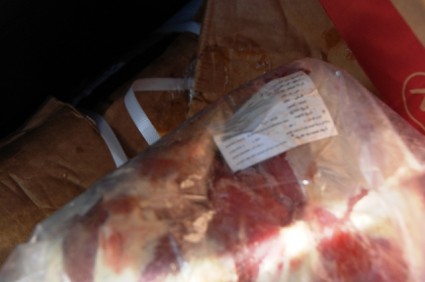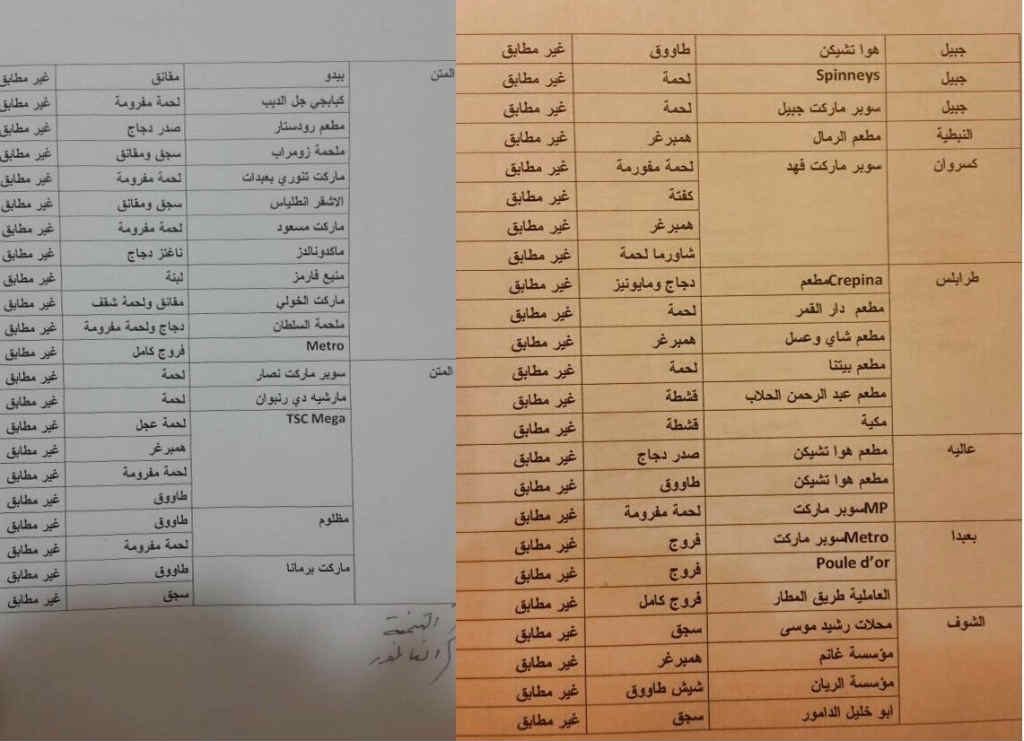
Health Minister Bou Faour confirmed to all the Lebanese today that the food they are eating is full of diseases and issued a list of restaurants and supermarkets that do not meet the proper health and hygiene conditions. The minister said that violating restaurants will be warned and fines will be forced.
Personally speaking, I love the initiative and I really hope that this won’t be a temporary campaign but at the same time, I disagree with the minister on publishing at first a list of places without sharing the full study that was conducted and all the information available on that matter. We need to know on which basis was this study conducted, what were the violations and why wasn’t the ministry doing its job in the first place before Bou Faour took charge? Who was responsible back then and who let Natour reopen and sell rotten meat once again? Are the violations all the same? Why weren’t they classified as serious or minor?
Now people will start freaking out and sharing this list blindly because that’s all they know. I mean seriously how the hell is Roadster and Kababji on that list? We all know they are the safest places to eat in Lebanon. And how can Hallab’s Achta in Tripoli be on that list? That’s his source of pride lol!
In all cases, Minister Bou Faour has been done a great job so far and I hope he will clarify this whole matter and explain to the Lebanese people how this study was done and what are the steps being taken to enforce further quality control in Lebanon and make sure what we are eating is safe. The last thing we need is another “Labneh” controversy.
Here’s the full list as compiled by LBCI, noting that Beirut is still missing (Why is that?) and that the violations were related to specific products or items as you can see from the picture at the bottom.
Metn District:
Bedo Restaurant
Kababji Restaurant
Roadster Diner
Zohrab Butchery
Tannouri Supermarket
Al-Achkar Supermarket
Massoud Supermarket
McDonalds Restaurant
Maneea Farms Organization
Khawli Supermarket
Sultan Butchery
Metro Supermarket
Nassar Supermarket
Marche Du Rond Point
TSC Megamarket
Mazloum Organization
Broummana Market
Byblos District:
Hawa Chicken
Spinneys Supermarket
Supermarket Jbeil
Nabatieh District:
Rammal Restaurant
Kesserwan District:
Fahd Supermarket
Tripoli District:
Crepina Restaurant
Dar al-Amar Restaurant
Shay W Assal Restaurant
Baytna Restaurant
Albdel Rahman Hallab Sweets/Restaurant
Makiyyeh Restaurant
Aley District:
Hawa Chicken
MP Supermarket
Baabda District:
Metro Supermarket
Poule D’or
Aamiliya Restaurant
Shouf District:
Racheed Moussa Stores
Ghanem Stores
Rayyan Stores
Bou Khalil Supermarket











A good Initiative from the ministry but once results are published they should be based on a study. To compare the standards, to check the sampling / handling and testing protocol. I still don’t understand what “their moutabek” is ! There should be sandards to compare data to. And in this study i really don’t see it. What is also strange that none of Beirut district restaurant is mentioned knowing that almost 10 years ago as part of my studies we took samples from various restaurant in Beirut some are very famous that have many branches- still open till now but unfortunately the restroom was open next to the kitchen. Other had fecal coliform in their meat (mishanndling) hair in other places. All what I want to say is that sampling and analysis should be applied at country level not only selected places. And still can’t belive that Alhallab has failed in Ashta while the other sweet places very unhygebnic in Tripoli were safe to eat at. I am from there and I know every single sweet shop and from where to buy and not to buy.
Here’s why the Lebanese are so insanely insane. 😛
Health Minister Wael Abu Faour: The food that the Lebanese are eating is full of diseases.
Hello Najib,
If you’d like to check it out al Jadeed published a longer list in this report :
Al jadeed tv report
The first impression one gets after reading this article is progress; then again one should be informed about the sources and the basis of this study.
But let us not go very far in this: the ministry cannot reveal all its secrets to the whole population; because this would be contrary to the secrecy and the privacy of its work. Then again it should’ve at least lightened citizens on the road brought to lead to those results.
Finally, I thank minister Abou Faour for his great job and hope he’ll keep it up!